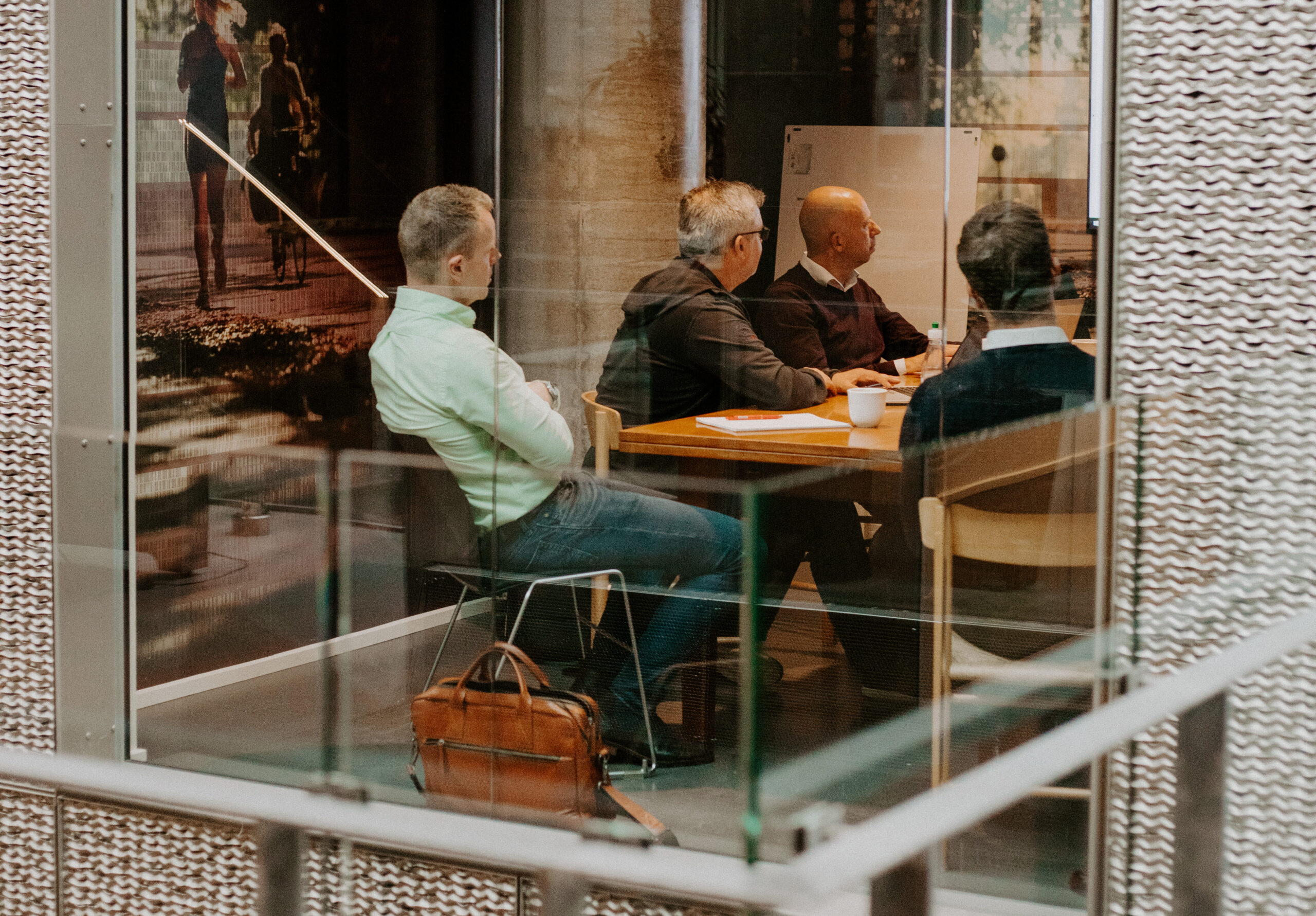In our previous article, we kicked off the new theme of The Supply Chain Management Crisis (if you haven’t read it, do it now! It is not only relevant to your company but also to you as a consumer). To continue the same topic, I felt compelled to talk to specialists within this area to see what they think hides behind it all. What should be our next move?
Thomas was one of my lecturers back in the days, clearly skilled and experienced within his field. Therefore, when the world was hit by the current crises, I knew that Thomas was the one to reach out to for input: What should be our next move?
LITTLE ABOUT THOMAS
The interviewee on the subject is Senior Lecturer in Retail, Sales, Procurement, and Management at Business Academy Aarhus. He is also a published author of books such as “Supply Chain Management and Marketing” and “Organization, Innovation and Supply Chain Management”.
“I´m specialized in retail and procurement and have extensive experience from danish and international retail organizations with project management, operations, and procurement. I thrive to provide solutions for business pains, whether related to staff or strategy.”
Before taking the job as a lecturer at the Business Academy, Thomas worked for companies like Salling Group as a manager and purchaser, Copenhagen Consulting Company as a management consultant, and as chairman of the Working Environment Organization in Kiwi Danmark A/S. Find more information about Thomas here.
BACK TO THE INTERVIEW
So, let’s dive back into the supply chain crisis. It shows itself in many places and it will spread even more in the foreseeable future. But could the crisis actually benefit us?
“The changes that come with the Global Supply Chain Crisis, might benefit the sustainability of our planet, as it forces companies to think about how they utilize all of the raw materials. We are consuming way more than the planet can handle. In just 6 months the world uses all the resources that the planet can regenerate in a year. To continue our lifestyle, it would require 2 planets. Looking at consumption in Denmark, it would require 4 planets.
The awareness of the problems has been rising a lot, which is a positive outcome from the situation that we are in. That also goes for the raising prices on freight, which might affect global production positively by decreasing the negative impact on environmental factors. It may initiate more local production, more sustainable freight (rail), and more circularity in the businesses. Of course, in the short run, it will cause price increases for goods. In our part of the world that will not be a real problem – we can afford it. Here it might mean taking two trips a year instead of three or having one car instead of two. As for the underdeveloped countries, it may mean putting them into even deeper poverty, which is obviously a very negative effect that must be handled accordingly.
This crisis has highlighted some of the global problems. Made consumers reevaluate what matters more.”

WHAT IS OUR NEXT MOVE?
It is undeniable that the business that we are used to is currently under construction. So, what can we, as companies, do to survive, adjust, develop, and contribute to this shift in ways of doing things?
“Businesses must be more aware, more agile, and act before they need to react. I think we will see shorter supply chains, fewer suppliers, and a lot closer collaborations within those parties. Companies will work much closer together. Without this close collaboration, it is hard to work smoothly and efficiently.
That’s one perspective. Another perspective is that we might need to think of more flexible and shorter contracts. To be able to adjust prices according to fluctuations in the market. Instead of having a contract for a year, you would have an adjustable contract, just like when you buy a house, and the interest rate of your mortgage fluctuates according to the market. I think the same will go for products. The goods price might fluctuate accordingly to the price of the raw materials to an even higher extent than today. That’s just a guess.”
BUT WHAT SHOULD WE DO TO FIX THE CURRENT SUPPLY CHAIN CHALLENGES?
The data on supply and demand has been fluctuating daily, what is right one day, might look completely different the next day! For example, the trade data. Within the last 2 years it has experienced first 13% decrease in imports and then 21% increase, making the numbers higher than before. That might not seem huge in a financial regard, it is however an extreme change in the realm of supply chain. Hence the crisis right now. Same with GDP, the fluctuation has been massive. That all to say that real time data has never been more crucial.
LOCAL OR OVERSEAS?
There has been a lot of buzz about whether we should move our production back home or keep them overseas (we also talked about it the last time). Here’s Thomas take on it:
“There is a lot of risk to overseas manufacturing. Now more than ever we see some of the risks. There are risks for shipping costs to rise and become too expensive for companies; natural disasters; as well as challenges related to the current pandemic. In general, overseas production entails less control. As we can see, we are not at the end of the pandemic, and we might not be for a while. It is crucial to establish new supply chains as alternatives to the once we currently use
When we started to outsource the production, it was mainly due to the labor costs, but as it is now, a lot of the production is automated. In many industries, labor costs are not as big a part of production costs as they used to be. Therefore, we might as well produce at home, instead of overseas. In that way, we will also be able to have the production more controlled. It will not cost us that much more.
Machinery maintenance prices in Denmark are roughly the same as in Asia.
There are also new options rising. For example, 3D printing has been hyped as a future production method. Where customers can come with a USB stick and print what they would like to buy. It all sounds amazing if you can do that, but I am not sure how far we are with that just yet. With some products, it might make sense to produce like that. But I think that is the exception.”
DO YOU THINK THE WORST IS YET TO COME?
“It is hard to define what is the worst. Even now, some of this is positive, since it is creating a change and bringing attention to many problems that have been there all along. For example, the consumption. In that way – the best is yet to come. But seeing it from the consumer’s point of view, I guess the short-term outlook is quite negative, since consumers might need to set aside some things that they want, but can´t buy.
There are so many things happening right now. Ports, Suez Canal being blocked, Covid-19, electricity shortage, and so on. Are we at the beginning, middle, or end of it all? I don’t know. But at some point, these problems will be gone. Suez Canal – that is fixed. The electricity shortage in China – they will probably just build sufficient power plants and then that will be fixed as well. Maersk will make more containers and order new vessels. Usually, if the demand grows, the supply will at some point meet it. If we continue to have the same demand for freight, for instance, the supply will expand. Either the demand will decrease, or supply will increase, but supply and demand will meet. New shipping methods might appear, existing options may develop, the costs of freight may change, I don’t know. I am not that concerned in the long run but has the worst of it peaked now or will it be in a year – I don’t know.”
OKAY, BUT ARE WE AT LEAST ON THE RIGHT TRACK?
President Biden tried to fix it by ordering all Los Angeles ports to be open and working 24/7 but that has been the way of doing things always. So that raises the question- do global leaders even have an overview of the issues of the global supply chain right now?
“I believe all the leaders are aware of it and its problems. But whether they are willing and capable to make the right decisions accordingly, that’s another question. Presidents and politicians can bring a lot of change for countries and the world. Make regulations, systems, and laws. But at the end of the day, a lot of critical discussions will be made by top management. And usually, the top management will look mainly at the profit. Whatever is profitable, they will adapt to. And that is a concern. The good part is that they are also getting more aware.”
ONE THING THAT EVERY COMPANY SHOULD THINK MORE OF
“A good business today will be a more sustainable one. I think it is a good idea for any company to think about what impact and value they are creating. Are they part of the problem or part of the solution? And are they doing anything to make things better? Companies must have more responsible production, more transparency, and more awareness of the impact that they are leaving.
Companies should become more transparent and provide more data on products and how they have been made. (What carbon footprint has it left, what kind of transportation has been used, and so on). That would require companies to work together to map it all. To track your impact, you will need data.
The more you can measure, the more you can act on your data. If I were in a business today, I would have a huge dashboard with everything that I could possibly map and measure. Some of it I may not need today, but someday a customer or a supplier will come in and ask – how did you impact this, and then I will have all the data available right there ready to show. And I could see how it has evolved over the past years. For me, data would be an essential part of the business. Data-based decisions are usually better than gut-feeling decisions. More real data, the better. Some people might argue that too much data can also be too much. Yes, but if you have the relevant data, then it is a game-changer. All data is important. You just must see which is relevant in the situation.”




